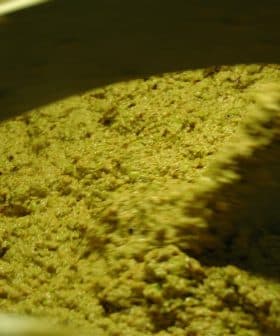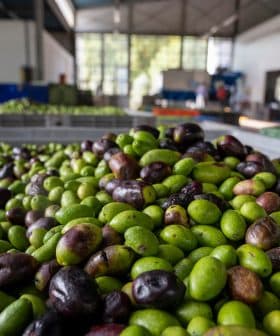A New Way to Detect Olive Oil Adulteration
Researchers at the Universidad de Alcalá in Madrid have patented a new system for testing oil purity and quality in response to recent controversies surrounding the adulteration of extra virgin olive oil by large-scale producers. The new method, which uses trigonelline as a marker of adulteration, aims to detect seed oils like soybean and sunflower in olive oil, providing a simple and economic solution for food testing labs worldwide.
In the wake of recent controversies surrounding the alleged adulteration of extra virgin olive oil by many large-scale producers, researchers at the Universidad de Alcalá in Madrid have patented a new system for testing oil purity and quality which they hope to implement in food testing labs around the world.
The olive oil industry came under sharp criticism worldwide last year when a study published by UC Davis indicated that many olive oils labeled “extra virigin” were not technically “extra virgin.” Many bottles were found to contain significant amounts of non-virgin olive oils, and some even contained soybean oil or sunflower oil.
The adulteration of supposedly pure, extra virgin olive oils violates international norms and presents potential health risks for consumers who may be allergic the oils not listed on the label. It’s also considered an act of fraud, as consumers unknowingly pay inflated prices for inferior and mislabeled oils.
The rise in suspicions of so-called olive oil fraud is what led this team of researchers to develop simple and economic methods for detecting adulteration. The team, which includes Antonio L. Crego Navazo, María Luisa Marina Alegre, Laura Sánchez Hernández and Carmen García Ruiz of the University of Alcalá, published its findings in the Journal of Agricultural & Food Chemistry.
“For the first time we investigated the possibility of betaine as a selective marker of adulteration,” explained Laura Sánchez, whose doctoral thesis laid much of the groundwork for the study. “Betaines are only minor components of oil, so they were never included with the major compound groups such as fatty acids, lipids, and sterols.”
This new process effectively tests for seed oils (soybean and sunflower) using capillary electrophoresis with UV detection. The main advantage of the method, according to the research team, is that it uses just one betaine compound, trigonelline, as a marker of adulteration. Trigonelline, which is found in seed-based oils but not in extra virgin olive oil, is very easy to detect using this method. Researchers hope the new test will become a valuable tool for quality control in oil laboratories around the world.









